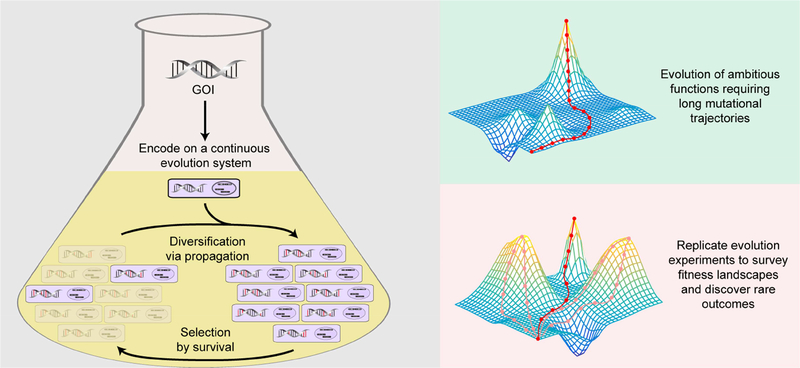Figure 1.
Continuous in vivo evolution systems enable the rapid continuous diversification of genes of interest in multiple replicate cultures. Through coupling continuous diversification with selection, simply passaging cultures can drive protein evolution on laboratory timescales. This allows proteins to achieve ambitious functions that may require high numbers of mutation (>10–20). Further, the ability to run replicate evolution experiments allows for the detailed mapping of fitness landscapes, discovery of rare outcomes, exploration of multiple environmental conditions and population structures, and statistical power in testing evolutionary reproducibility and basic evolutionary theories.

